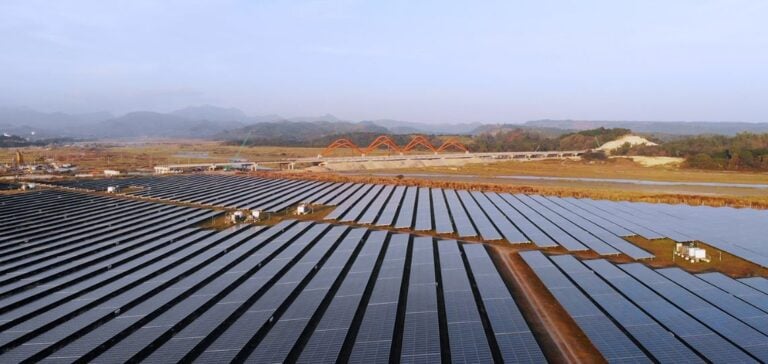Citicore Renewable Energy Corporation (CREC), a leading renewable energy developer in the Philippines, recently entered into a significant agreement with Trinasolar, a global leader in smart photovoltaic solutions and energy storage. This agreement, signed at a ceremony in Manila on November 11, 2024, aims to supply solar modules with a total capacity of 2 gigawatts (GW), marking the largest contract between the two companies.
The partnership includes the delivery of Trinasolar’s Vertex N 720W (NEG21C.20) series, an advanced technology in energy efficiency. These modules will be used in CREC’s future solar projects in the Philippines, which aim to add 2 GW to its renewable energy production portfolio. This initiative aligns with the Philippine government’s priority programs for renewable energy, particularly through the Green Energy Auction program.
A 5 GW commitment over five years
The agreement with Trinasolar is part of CREC’s ambitious target to reach a capacity of 5 GW within five years. According to Oliver Tan, President and CEO of CREC, the first gigawatt is already underway, and this new 2 GW agreement represents a key step toward this goal. The strengthened partnership with Trinasolar now totals 3 GW in capacity, reflecting a strategic collaboration to promote energy transition.
This partnership also symbolizes CREC’s dedication to advancing a “Green First World” concept, supported by the aim to accelerate the Philippines’ energy transition towards sustainable, emission-free production. CREC thus positions itself as a leading player in the country’s renewable energy sector.
Trinasolar and Citicore: A shared vision for a sustainable future
For Trinasolar, this agreement represents the largest contract in the Philippines. Helena Li, Trinasolar’s Executive President, emphasized the deep trust between the two companies and their shared vision of a sustainable future for the country. Trinasolar is committed to providing cutting-edge solutions capable of meeting the Philippines’ growing energy demands while reducing the carbon footprint.
The Vertex N 720W series panels are designed based on the advanced i-TOPCon cell technology, featuring n-type cells that are more efficient than their p-type counterparts. These modules ensure better energy efficiency and optimized Levelized Cost of Energy (LCOE), a crucial parameter for large solar energy projects.
A strategic partnership for renewable energy in the Philippines
The signing of this agreement was also witnessed by influential figures from both companies, including Alreetz Santander, President of Citicore Construction, and Todd Li, President of Trinasolar Asia Pacific. Their presence highlights the importance of this agreement, not only for the stakeholders but also for the energy sector of the country.
This agreement is only one step in Citicore’s development of renewable capacities and the integration of cutting-edge technologies to achieve the national goal of energy sustainability. CREC and Trinasolar not only aim to meet the country’s growing energy needs but also set new standards for sustainable development in the region.






















